Iran's President Rejects Nationwide Lockdown Despite Soaring Omicron
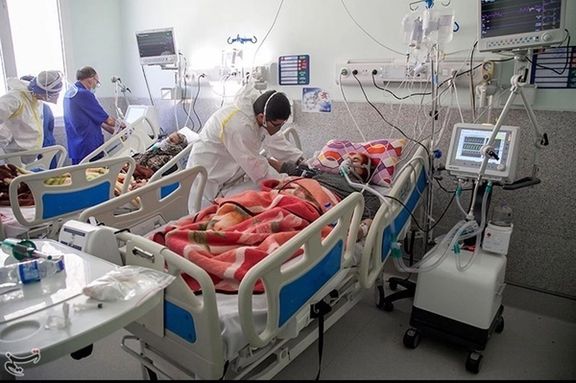
Despite the highly contagious Covid-19 Omicron variant spreading fast across Iran, President Ebrahim Raisi has rejected proposals for a nationwide shutdown.

Despite the highly contagious Covid-19 Omicron variant spreading fast across Iran, President Ebrahim Raisi has rejected proposals for a nationwide shutdown.
Raisi made the decision during a session of the Covid-19 taskforce on Saturday while 120 cities are now considered "red zones”.
Instead, he proposed that the definition of the red zones should be changed in a way that the number of 'red' cities decreases.
Raisi said the country should not go into lockdown as was the case during the previous waves and restrictions should be regional and local.
Etekaf (from the Arabic for ‘adhering to’) ceremonies, scheduled this year for February 15-18, during which large numbers pray in mosques throughout day and night, were cancelled in the cities deemed red zones.
The government hasn’t announced restrictions on the Fajr film and theater festivals, and its plans remain in force to re-open schools and to hold gatherings during the ten-day Fajr period that ends on the anniversary of the 1979 Revolution on February 11.
This would not the first time the Islamic Republic seems to prioritize official events over the health and safety of people. There were media allegations that authorities played down the threat from Covid in early 2020 so as not to deter voting in the February 2020 parliamentary elections.
Health authorities, who have said the country is in a sixth wave of the pandemic, expect infections to rise to “up to”
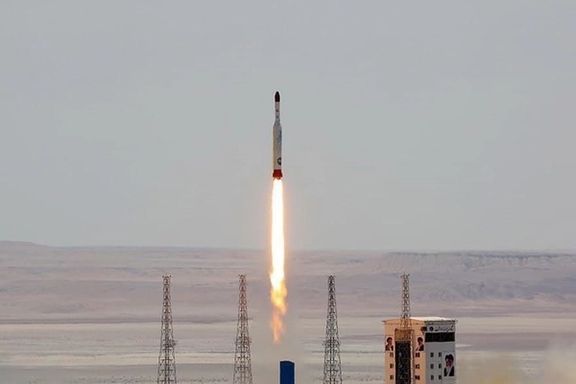
Members of the US House of Representatives has asked President Joe Biden to focus on Iran’s ballistic-missile capabilities.
In a letter released by National Review on Friday, a group of lawmakers called for a clear strategy to counter the evolving capabilities of Iran’s long-range strikes and urged the administration to take measures against the threat.
The group, led by Representative Joe Wilson who is the chairman of the Republican Study Committee’s national-security taskforce, said the recent tests of a satellite-launch vehicle contributes to attempts to develop an intercontinental ballistic missile whose range could “potentially put US allies in Europe as well as the US homeland in range.”
They expressed concerns over the recent missile launches by Iran-backed Houthis in Yemen against the United Arab Emirates and the Iranian military launches of 16 ballistic missiles during military exercises in December and said these all overlapped with the talks to revive the nuclear deal in Vienna.
They said the Biden administration only condemns such launches “but concern and condemnations are insufficient. Action is needed”.
“The Trump administration routinely sanctioned these networks which supported Iran’s missile and military programs as well as those of its proxies, whereas your administration has been lagging in this area,” read the letter.
They demanded written answers in 30 days to questions about the capability of CENTCOM defense systems against the missile threat and the administration’s measures to enforce sanctions on sectors of Iran’s economy that support the ballistic missile program.

Several human rights groups have called on Canada to stop former officers of Iran’s military (IRGC) and other human rights violators from entering the country.
In an open letter signed the human rights groups on Friday asked the prime minister not to allow Canada to become a haven for Iranian officials who are known rights violators.
The move was in reaction to a short video of a retired commander of the Tehran's Police forces and the IRGC, Morteza Talaie, working out in a gym during a visit to Canada.
The video was shared on social media last week with a caption saying the former police chief has emigrated to Canada. It drew criticism from dozens of social media users, especially after Talaie released a video from Tehran, denying the report and saying it is nobody’s business where he travels.
Expressing serious concerns, the rights groups urged the Canadian government “to take immediate action to uphold its stated commitment to human rightsand ensure that impunity at home, does not mean impunity abroad”.
“Allowing Talaei to freely enter Canada sends a dangerous message; a message that is an affront to Iranians who have themselves sought refuge in Canada”.
Talaei orchestrated widespread crackdownson protestors, mass arrests, beatings, and torture of many dissidents, and is the founder of the so-called hijab police.
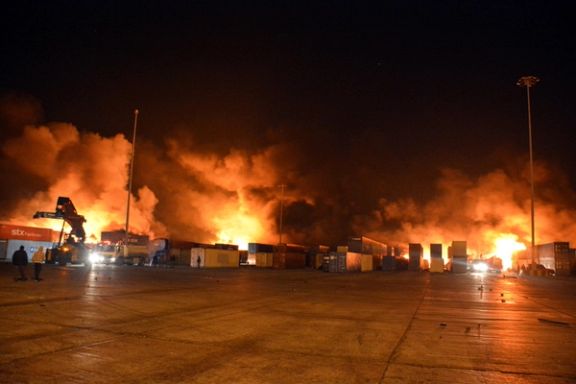
Israel is considering the possibility of a direct conflict with Iran’s Revolutionary Guard in Syria and its proxies in Lebanon, Iran International has learned.
Our reporters in Israel have learned from reliable sources that the Israeli military is preparing a month-long exercise to gauge its readiness to fight Iranian forces and proxies on its borders with Syria and Lebanon.
Iran maintains its Revolutionary Guard Qods (Quds) forces in Syria as well as large contingents of Afghan and other militias who have fought for a decade under Iranian command to defend Bashar al-Assad’s rule. But since at least 2017, these forces have tried to position themselves at the border with Israel to open a front, similar to Hezbollah on the Israeli-Lebanese border.
Israel has repeatedly warned in the past five years that it will not tolerate the entrenchment of Iranian forces in Syria, specially near its borders. It has launched hundreds of air raids against suspected Iranian targets, weapons depots, and arms shipments in Syria and from there to Lebanon.
Iran International has also learned that Israel is planning to hold the military drills in May to prepare for large-scale conflict and to confront possible attacks by Iranian forces in case of an Israeli strike against Tehran’s nuclear installations.
Israel has repeatedly said that the Vienna nuclear talks between Iran and the West do not provide the assurance it needs for preventing Tehran from pursuing a nuclear weapons option. It has said that it reserves the right to deal with the Iranian nuclear program through its own means, which would be a military strike to derail Iran’s uranium enrichment and other aspects of the nuclear program.
In case of such a strike, forces commanded by Iran would most probably retaliate against Israel from Syria and Lebanon. This would be a convenient option for Iran, instead of direct missile attacks against Israel that could expand the conflict into a full-fledged regional war, possible involving the United States.
Israeli officials and media have been discussing the real possibility of attacks from Syria and Lebanon in case of a strike against Iran. In such a scenario, Israelis have hinted at large-scale retaliation not only against aggressor forces but also at targets throughout Syria, including Syrian government assets.
Israel holds Assad’s government responsible for whatever takes place in territories under its control.
Although relations between Israel and the Biden Administration are as close as ties former Prime Minister Benjamin Netanyahu enjoyed with Donald Trump, but in recent weeks there have been signs of more military coordination and contacts.
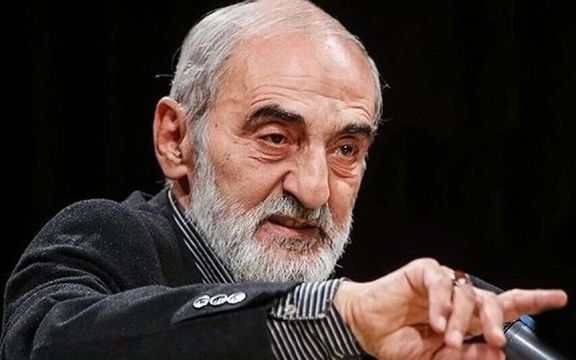
The editor of a hardliner daily operating under the aegis of the Islamic Republic's Supreme Leader says Iran's precision missiles can target any spot in Europe.
Hossein Shariatmadari, whose newspaper Kayhan is believed to reflect Supreme Leader Ali Khamenei’s views, was speaking at an event in Hamadan, northwestern Iran on Thursday, on the 1979 Islamic revolution anniversary. Reformist Etemad Online also quoted Shariatmadari as saying that anti-Americanism is in the nature of Tehran's Islamic regime.
The hardliner editor said that once upon a time Iran was weak but now it is powerful and all of Europe is within the range of its precision-guided missiles.
He added, that there is a perpetual battle between the Islamic Republic, which represents "real Islam" and the "arrogance" of the United States, which can only end if Iran's government gives up Islam or the United States its 'arrogance'.
During recent days, while the Islamic regime has been celebrating its revolution's anniversary, other Iranian officials have also made controversial remarks.
IRGC Commander Hossein Salami who is known for his outlandish remarks, said on Friday"No world power is capable of confronting the Iranian nation.
Earlier this week, when former nuclear chief Fereidoun Abbasi called on the United States to officially recognize Iran as a world power, social media users mocked him by calling his remarks "delusional boasting" and commented: "How can a country whose military budget is less than 0.5% of the rest of the world and has no air force, a naval force fit for the oceans and cannot have financial transactions with the world be a world power?"
In another development on Friday, IRGC General Ahmad Zolghadr who is in charge of maintaining the Capital Tehran's security said he knows that Americans believe that Shiites have a gene in their body, which boosts their zeal and the United States wishes to inject that gene into the body of its soldiers.
Boasting about Iran's military power, Shariatmadari said that Iran defeated the Islamic State group in Syria and reiterated that "If we did not fight ISIS in Syria, we would have been shining their shoes in Iran today." Iran, throughout its decade-old military involvement in Syria, has protected Bashar Assad by fighting the Syrian opposition.
Meanwhile, the firebrand editor appointed by Ali Khamenei claimed there were some 50,000 US military advisers in Iran before the 1979 revolution. This comes while according to 1979 news reports there were around 40 thousand Americans in Iran at the time, who were mainly working with international companies, including their family members.
Speaking on negotiations with world powers in Vienna to revive the 2015 nuclear deal, Shariatmadari, a well-known opponent of the JCPOA and relations with the West, said that the talks are meant to lift the 1,500 sanctions imposed on Iran by the United States but none of those sanctions have been lifted yet.
During the past two weeks, while the Iranian foreign minister Hossein Amir-Abdollahian and dozens of Iranian lawmakers called for direct talks with the United States, Kayhan and its editor opposed negotiations with the United States and called on the foreign Minister and Iran's security Chief Ali Shamkhani to repent for their support of direct negotiations with the US. Shamkhani wrote an apologetic statement and denied his support for direct talks, but the Foreign Minister ignored Shariatmadari and his newspaper.
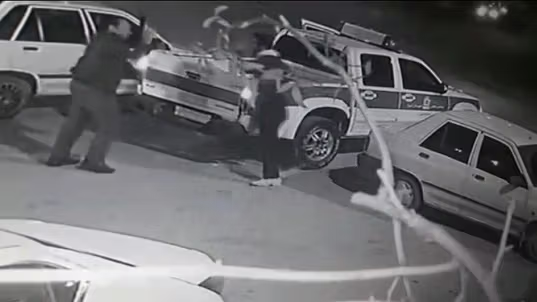
Following the death of a police officer, Iranian authorities are contemplating to change laws to give more freedom to police for using firearms.
On Friday, Iran's Police Chief Brigadier General Hossein Ashtari called on the parliament, the judiciary, and the ministry of justice for amendments to current laws.
Parliament Speaker Mohammad Bagher Ghalibaf promised to consider it immediately and ordered a draft of amendments to be prepared.
The move to ease the use of firearms by police was prompted after a police officer was killed by knife stabs on his neck and body in a confrontation with a criminal in Fars province on Wednesday.
According to current law, police can use firearms in at least 10 situations, including for self-defense or defense of others. In such cases, officers should give verbal warnings before firing warning shot. Then they can shoot at the lower body, and if necessary, shoot at the upper body.
It is not clear which part of the law will be amended but many fear that it is can be used to let police use guns whenever they want, especially during protests that have been frequently taking place in Iran.
In the past, the government has shot protesters labeling them ‘thugs and criminals.’
In October 2021, the UN Special Rapporteur for Iran said that police often use lethal force against protesters and international human rights organizations have accused Iran of killing hundreds of protesters since late 2017, using military ammunition.